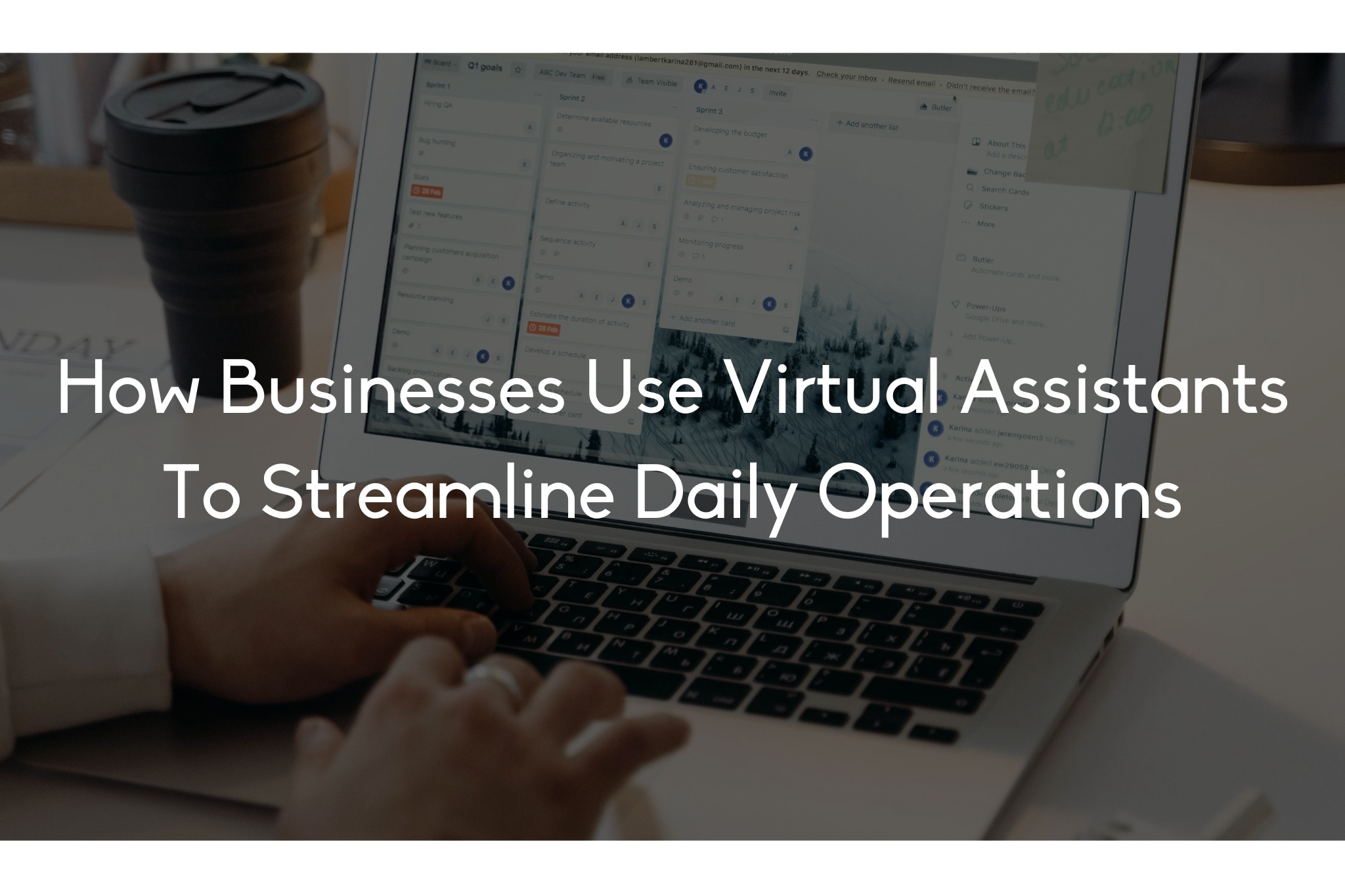

Running a business today demands speed, adaptability, and sharp focus. But between admin tasks, customer support, marketing, and everything else that piles up, it’s easy to get stuck working in the business instead of on it. That’s where virtual assistants come in.
Businesses across industries—from real estate to e-commerce to coaching—are tapping into virtual assistants to simplify their day-to-day operations, save time, and scale smarter. It’s not just about outsourcing tasks anymore—it’s about building leverage.
In this post, we’ll walk you through the practical ways businesses are using VAs to boost productivity, tighten up operations, and drive growth—without burning out or ballooning their payroll.
Administrative work is necessary, but it doesn’t move the needle. Entrepreneurs who spend their time managing calendars, responding to basic emails, or formatting documents are essentially paying CEO-level rates for low-impact tasks.
VAs handle scheduling, email filtering, data entry, CRM updates, travel bookings, and more. At Katuva, clients typically start here—offloading these tasks allows business owners to reclaim their time and focus on strategy, sales, or innovation.
A well-trained VA doesn’t just take orders—they build systems that improve over time. Think: setting up automated calendar tools, creating SOPs for inbox management, and maintaining an organized cloud file system so you don’t have to.
Content creation, SEO, and social media engagement are crucial, but they’re time-intensive. Consistency is the secret to traction—and inconsistency is usually a bandwidth issue.
Marketing-focused VAs support content scheduling, blog formatting, SEO updates (on-page and off-page), social media engagement, and even email campaigns. Whether it’s repurposing blog posts into Instagram carousels or managing your YouTube uploads, VAs keep the marketing engine running while you focus on messaging and strategy.
At Katuva, we’ve built SOPs that help VAs run content calendars, manage Dream 100 campaigns, and support public relations tasks like pitching podcasts or organizing press releases.
Many leads go cold not because of a lack of interest, but because of a lack of follow-up. Most businesses leak revenue through inconsistent outreach.
VAs run short-, medium-, and long-term follow-up systems via email, text, or CRM updates. Using scripts and templates, they keep prospects warm, gather data, and escalate qualified leads to your sales team.
At Katuva, we teach VAs how to track pipeline progress, log detailed notes, and even book sales calls directly using systems like Calendly, HubSpot, or Close.com.
Acquiring a new customer is more expensive than keeping one. But too often, businesses miss check-ins, don’t measure satisfaction, or drop the ball on onboarding.
Customer support VAs manage client onboarding, troubleshoot common issues, and handle communication touchpoints post-sale. Some even set up onboarding systems like welcome emails, support ticketing, and feedback loops.
We train our VAs through our Empower+ and VA Ignite programs to provide proactive, high-touch client experiences that lead to higher retention and referral rates.
 Running Payroll and Bookkeeping
Running Payroll and BookkeepingFinance functions are critical, but they don’t need to be handled by the founder. In fact, founders who try to manage payroll or reconcile expenses often make costly errors or delay reporting.
Finance-trained VAs can handle payroll tracking, invoice creation, payment reminders, expense categorization, and even light bookkeeping using tools like QuickBooks or Xero.
Katuva provides SOPs around monthly budgeting, profit distribution, and cash cushion planning so that your VA is operating within a reliable financial structure.
Hiring is time-consuming, especially if you’re vetting dozens of candidates per role. A streamlined hiring process can significantly reduce time-to-hire without sacrificing quality.
VAs assist with job posting, candidate screening, scheduling interviews, and even running initial pre-qual assessments. For internal teams, they can help manage recruitment drives, maintain applicant tracking systems, and coordinate interview logistics.
Katuva’s internal hiring support VAs use templates and workflows that have helped us scale to over 50+ VAs and growing—fast.
Specialized businesses (real estate, law firms, agencies) often have repeatable tasks that don’t need to be handled in-house but require familiarity with industry tools.
VAs with niche experience often become extensions of the business, handling 70–80% of backend workflows.
Without a clean internal structure, even small businesses start to feel chaotic. Disorganized files, unclear processes, and communication gaps slow everyone down.
Operations-focused VAs manage internal wikis, update SOPs, lead task tracking in tools like ClickUp or Asana, and help coordinate internal projects like trainings or announcements.
At Katuva, we use these roles to support Office Hours, Ongoing Trainings, and internal documentation updates—critical as we scale our own business.
Scaling doesn’t always mean adding complexity. In fact, growth is often about subtracting the wrong tasks so the right people are doing the right work.
High-performing companies build VA teams around core business functions to create breathing room for founders and key employees. Whether it’s building a team of 3 or 30 VAs, the goal is to move the right work off your plate—permanently.
At Katuva, we’ve helped small teams go from overwhelmed to organized by strategically adding trained VAs who act as partners, not just assistants.
Hiring a virtual assistant isn’t about giving away work you don’t like—it’s about giving away work you shouldn’t be doing. When leveraged properly, VAs become a force multiplier: increasing your efficiency, deepening your client relationships, and giving you the capacity to think bigger.
At Katuva, we don’t just place VAs—we train them, support them, and match them to clients with intention. Whether you’re a solopreneur looking to reclaim 10 hours a week or an agency ready to build an entire offshore team, a skilled VA can be your first (or next) best hire.


